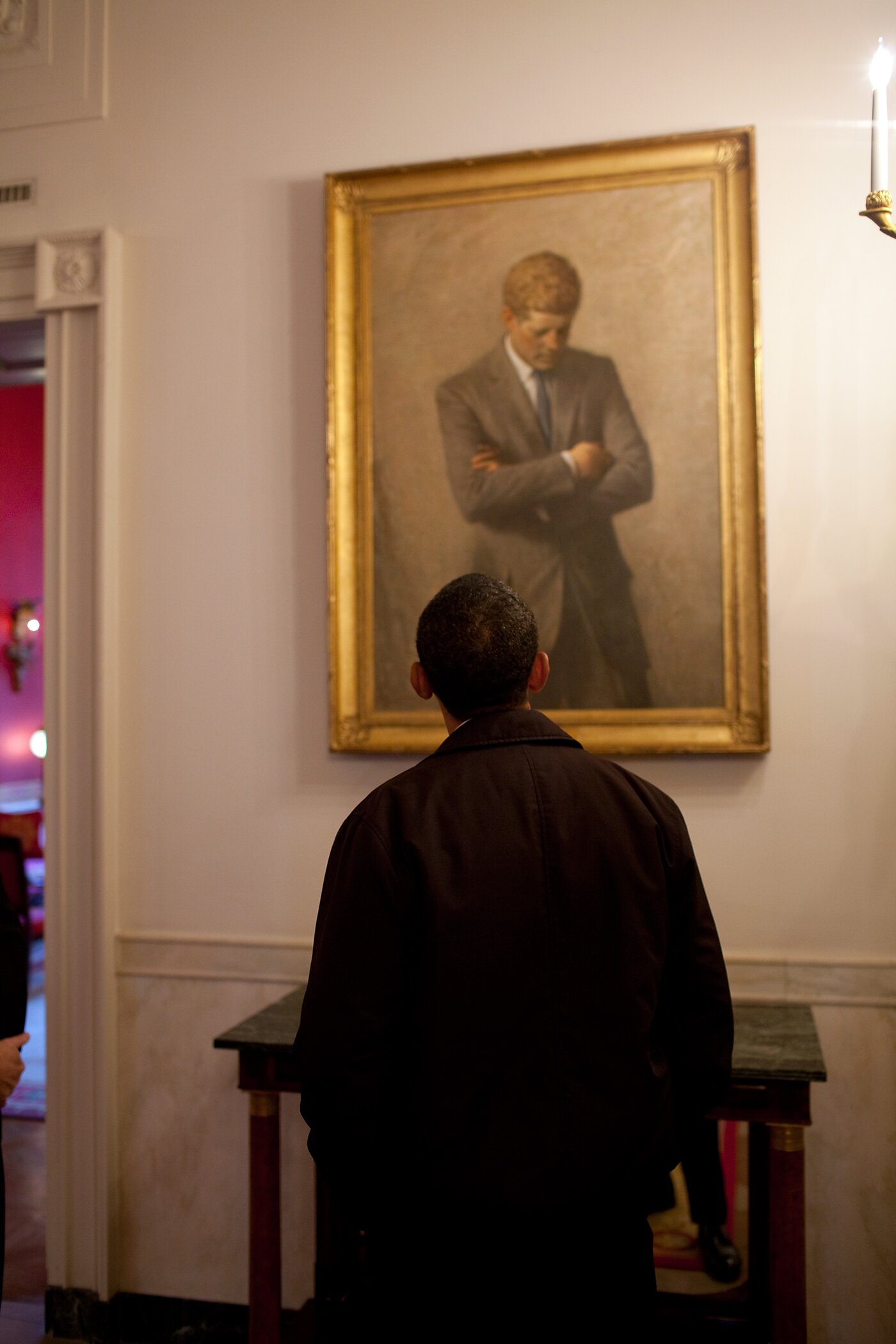It’s legacy-polishing season for the Obama administration, with the president making himself available for “articles that will allow [him] to showcase his major achievements,” the New York Times reports. Over at Time.com, I have a piece on what I think will turn out to be Obama’s lasting legacy: the evisceration of virtually any remaining legal limits on the president’s power to wage war abroad.
As I note in the column, it’s unlikely that “history” will judge our 44th president harshly because of that. After all, “when it comes to presidential legacies, ‘history’ has lousy judgment.”
More specifically, the academics charged with evaluating presidential legacies have lousy judgment. A look at the presidential rankings reveals that the scholars who fill out the scorecards hardly subscribe to the historian-as-“hanging-judge” theory. Bill Kauffman’s arch description of the rankings is more accurate: “polls by which court historians reward warmarkers and punish the peaceful.” The odious Woodrow Wilson is a perennial top 10 favorite, while his normalcy-securing successor, Warren Harding, is nearly always dead last. Say what you will about Wilson’s brutality and contempt for civil liberties at home, his senseless waste of life abroad–at least the man dreamed big! Teapot Dome, however? Unforgivable.
During the last presidential election cycle, CNN asked some leading presidential historians to opine on the theme “What is ‘presidential greatness’?” Their answers reveal a perverse favoritism toward activist, warrior presidents.
- “In good times or bad, a president is expected to do something!” says presidential biographer Richard Reeves: sometimes, as with the Cuban Missile Crisis, “he does the right thing and becomes great for it.” The “right thing” in this case, apparently, was bringing the world to the brink of thermonuclear war over a missile deployment that Kennedy knew had no strategic consequence, but would have made him look bad politically.
- Aida Donald, author of Lion in the White House: A Life of Theodore Roosevelt, informs us that “Harry Truman was also a great president, because he was commander in chief in a great war.” That would be Truman’s “police action” in Korea, launched without congressional authorization, in which over 33,000 U.S. servicemen died.
- And historian H.W. Brands, while noting that “being a good president” should be “good enough,” squelches that sensible point with another atrocious example: “James Polk broke the impasse over expansion to the Pacific.” Polk did that by “unnecessarily and unconstitutionally” launching a war—as a young congressman named Abraham Lincoln pointed out—to steal land from Mexico.
Presidential scholars tend to wax messianic when they mull “presidential greatness.” In their book on the subject, the scholars Marc Landy and Sidney Milkis write that the great ones demonstrate the wherewithal “to engage the nation in a struggle for its constitutional soul.”
The president described in the Federalist Papers is a humbler figure, possessing “no particle of spiritual jurisdiction.” His actual job description, contained in Article II’s oath of office, is to “preserve, protect and defend” the nation’s fundamental law.
If historians used that metric, Obama would have reason to worry about his legacy. As it stands, though, he’ll probably do just fine.

